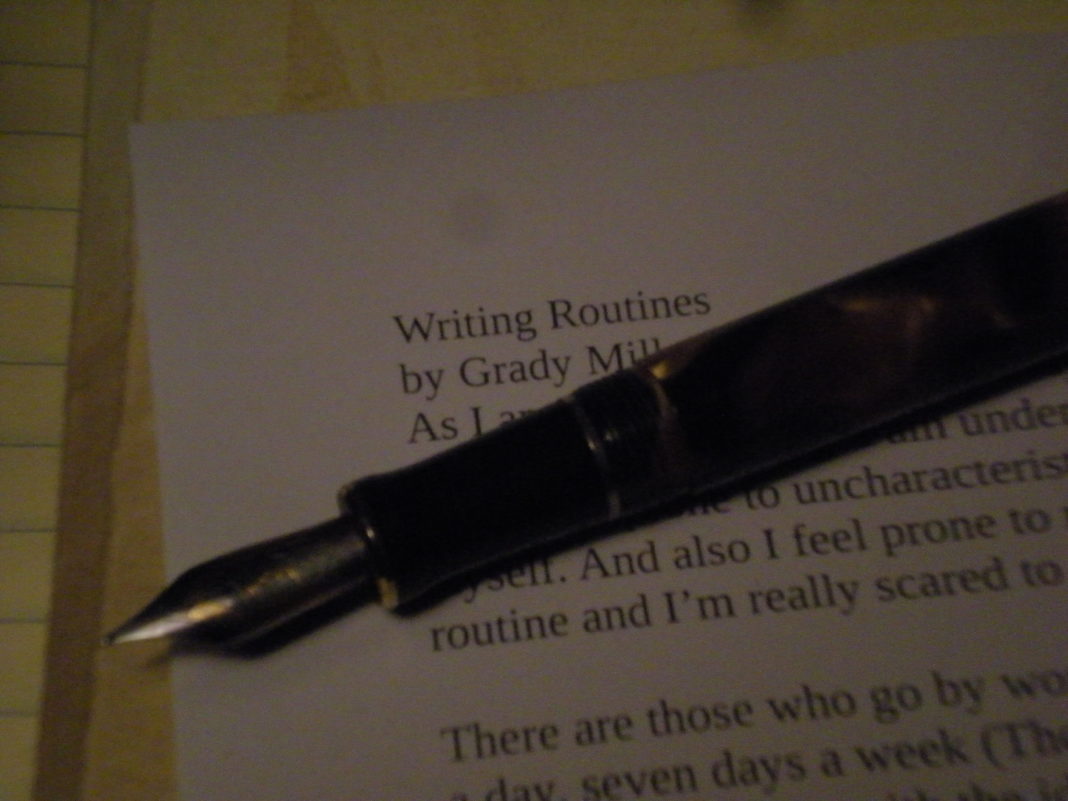UNITED STATES—I am in the final stages of a major novel, my first, and both my bonds with teaching are eroding and emotional tensions are mounting. I am under great tension albeit, creative tension, which is very good, sort of like good cholesterol is good. But this makes me prone to uncharacteristic outbursts and sudden tenderness, at the most unexpected moments, as if it were enjoying theater for myself. What’s more, I feel prone to keen nostalgic cravings for a set routine, but time has taught me that routines have their season.
There are those who go by word count (500 a day, Graham Greene) and those who put in three or four hours a day, seven days a week (Thomas Mann) regardless of country, war or peace. Let’s consider some examples, starting with the idyllic cliché of peace, calm and joy. The writer: Gabriel García Márquez. The place: the Caribbean colonial city of Cartegena.
“A period of almost complete happiness” is how Garcia Marquez described the two years spent writing ‘Love in the Times of Cholera’
“Everything went well. People pass their lives thinking how they would really like to live. I have questioned my friends about this and nobody seems to have a very clear answer. I have mine now: I wish that my life could have been like these years in which I wrote ‘Love in the Times of Cholera.’”
He got up at 5:30 or 6 in the morning, after only needing six hours of sleep. He listened to the news. He read from 6 to 8. Somebody came to the house bringing fish, lobster or fresh shrimp, caught nearby. Afterward, García Márquez wrote from 8 to 1 in the afternoon. He recounted to a Colombian newspaper after the book was published, “Toward noon, my wife Mercedes went down to the beach and waited for me with some friends. I never knew who I was going to see, because there were always people coming and going. After eating lunch, I had a little siesta, and when the sun began to go down, I’d go out into the streets looking for places my characters would visit, I’d chat a while, and soak up the language and local atmosphere. Thus, the next day I would have fresh material brought from the streets.”
An important facet of this routine, which Marquez himself loved so much, was living in Cartagena, where much of the novel is set. This handled the writer’s chronic dilemma of, “What am I doing to gain new experiences?”
But if you think you need this semi-tropical peace and calm to write a book, think again.
In her maturity, the British novelist Jane Austen would try to write every day, which was not the easiest task in a boisterous household with no room of her own and many visitors that cut into Jane’s quiet time. The Austen women gardened, they cooked, the sewed, they talked. There were many comings and goings. In the busy household, Jane wrote whenever she could with the instantaneity of ink and quill.
Her earliest novels were drafted in the rural Hampshire district of England. Writing became impossible in the social swirl of Bath where Jane’s dad retired and their family moved in 1800. Several years later, after her father died, they returned to Hampshire, Jane’s writing resumed, revising her first novels. Here she had no room of her own and set herself up on a tiny table near the front door, close to a window, for the light and perhaps the ambiance.
Truman Capote’s most idyllic and idealized time was spent writing the non-fictional “The Muses Are Heard.” Done for The New Yorker, this amusing and richly painted account of a U.S. company’s “Porgy and Bess” tour of the Soviet Union was his extended foray into non-fiction before “In Cold Blood.” He found ho could forego all his rituals (writing in bed, and a beverage progression, from coffee to tea throughout the hours of the day), and write anywhere, on a train, in a hotel lobby, perched on a sidewalk. The author would always recall with joy the process of gypsy creation of a very funny and luminous work, among his lesser known, but among the best.
Talking about routines and habits are so appealing because they are so tangible. We love to hold on to these tangibles because there is little else to hold onto in this numinous vocation that conjures magic of poetry, the spell of the campfire, and evokes a kind of firefly glow in the human heart.
Graydon Miller, the Wizard of Fiction, is the author of “The Havana Brotherhood,” stories from south of the border.






